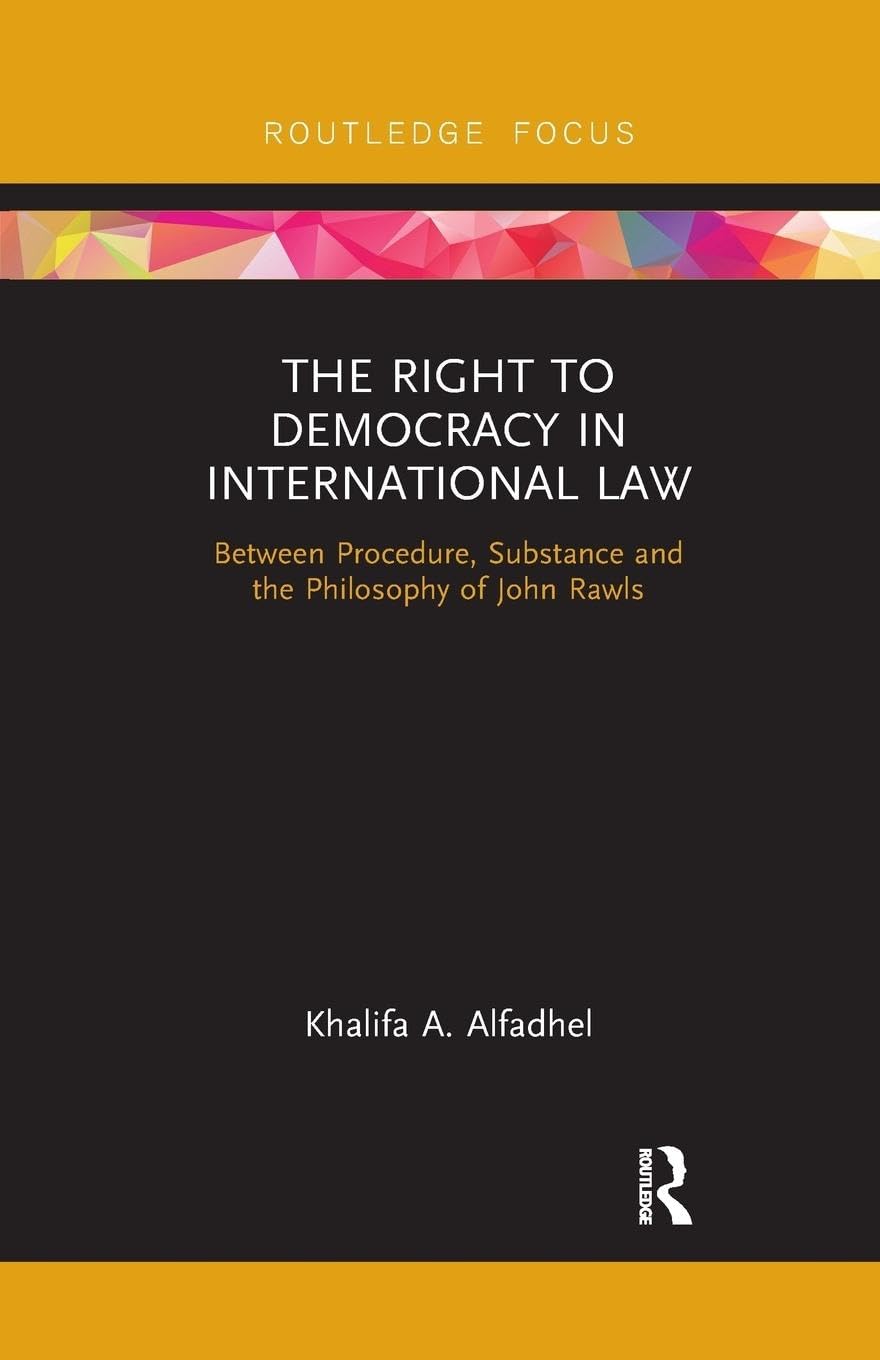The Right to Democracy in International Law: Between Procedure, Substance and the Philosophy of John Rawls
The Right to Democracy in International Law: Between Procedure, Substance and the Philosophy of John Rawls is backordered and will ship as soon as it is back in stock.
Couldn't load pickup availability
Genuine Products Guarantee
Genuine Products Guarantee
We guarantee 100% genuine products, and if proven otherwise, we will compensate you with 10 times the product's cost.
Delivery and Shipping
Delivery and Shipping
Products are generally ready for dispatch within 1 day and typically reach you in 3 to 5 days.
Book Details
-
Author: Khalifa A. Alfadhel
-
Publisher: Routledge
-
Language: English
-
Edition: 1
-
ISBN: 9780367193478
-
Pages: 124
-
Cover: Paperback
-
Dimensions: 8.5 x 5.3 x 0.3 inches
-
Weight: Not provided
About the Book
This book investigates the concept of the right to democracy within the realms of international law and contemporary democratic theory. It critically examines whether international law offers a substantive or procedural understanding of democracy. The work explores whether there exists a foundation for the right to democracy in international customary law, identifying relevant state practices and opinio juris, and analyzing the Universal Declaration of Human Rights to determine whether certain provisions might be interpreted as forming customary law.
The book goes further to explore key international treaties, including the International Covenant on Civil and Political Rights. It also discusses the role of regional organizations and human rights systems, such as the European Court of Human Rights and the Arab human rights regime.
Drawing on the theoretical contributions of John Rawls, Alfadhel proposes a compelling theoretical foundation for the right to democracy, offering both a legal and philosophical perspective on the topic.
This book is essential reading for scholars, students, and professionals interested in international law, human rights, and democratic theory.





